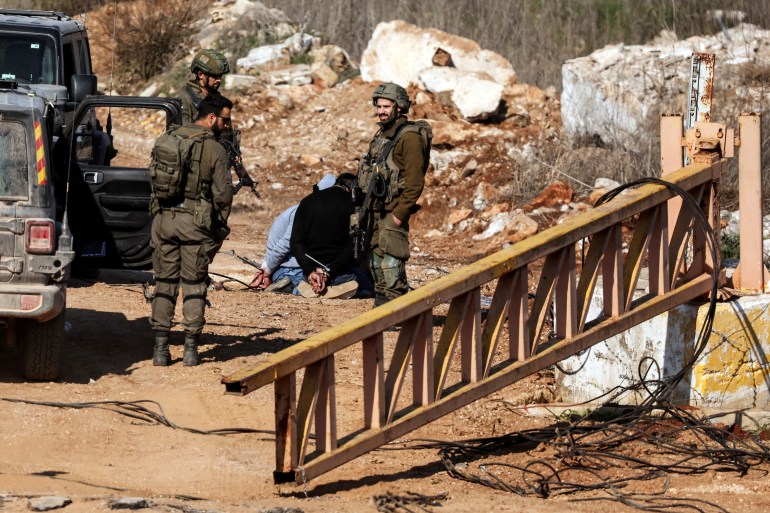The Lebanese group Hezbollah was to withdraw its forces from southern Lebanon by January 26 under the initial conditions of the agreement that resulted in a ceasefire between Israel and the Lebanese organization in November.
The deadline was changed to February 18, but Israel has since refused to withdraw its military. Israel has also continued to bomb locations in Lebanon on occasion, despite receiving widespread condemnations from the latter, claiming that Hezbollah is being targeted for violating the ceasefire.
With Israeli troops shooting at people who get too close, thousands of people in southern Lebanon are still unable to go back to their homes.
Israel and Hezbollah, a Shia militia with the most powerful military presence in Lebanon, started a conflict on October 8 when the Lebanese organization launched strikes in support of Hamas, a Palestinian organization in Gaza, as Israeli forces attacked the Israelis. Hassan Nasrallah, the head of Hezbollah, was killed on September 27 as a result of Israel’s continued attacks on Lebanon.
Since October 2023, Israel has killed about 4, 000 people in Lebanon.
Why does Israel continue to occupy southern Lebanon? How is this a “ceasefire”? And what exactly is Israel’s end game?
Here’s all you need to know.
Did the ‘ ceasefire ‘ stop the war?
While Hezbollah has stopped its attacks, Israel has not.
Israel’s bombing has stopped and the southern suburbs of Beirut have not experienced the same level of intensity as they did before the ceasefire struck on November 27.
However, Israel continues to launch attacks occasionally, some of which are north of the Litani River, where Hezbollah is required to relocate its forces north in accordance with the ceasefire agreement.
A data collection organization called the Armed Conflict Location & Event Data Project (ACLED) has documented 330 airstrikes and shelling incidents carried out by Israel between November 27 and January 10, as well as 260 property destruction incidents.
What about Hezbollah?
Hezbollah is alleged to have violated the ceasefire’s terms as well as by Israel.
Hezbollah has not withdrawn from southern Lebanon, according to Israel Katz, the country’s defense minister.
In January, Katz said, “If this condition is not met, there will be no agreement and Israel will be forced to act on its own to ensure the safe return of residents of the north to their homes.
Naim Qassem, the secretary general of Hezbollah, stated in a speech in late January that the country had adhered to the ceasefire agreement without specifying whether or not his organization had completely withdrawn from the south.
Hezbollah has carried out one attack since the ceasefire started, according to ACLED.
A single attack on the Israeli Rwayset Al Alam site in Syria on December 2 was one of the few that Hezbollah has resisted violence, according to ACLED’s Ameneh Mehvar, who reported to Al Jazeera.
Qassem vowed to keep the group patient despite the group’s repeated attacks.

What has the international response been?
Israel’s ceasefire violations have been brought in by Lebanon with the UN as a complaint.
Emmanuel Macron, the president of France, pressed Israel to adhere to the first ceasefire’s terms without much effect. France and the United States were the agreement’s original brokers.

Is there any recourse for violations?
The US, a strong ally of Israel, allegedly provided assurances that the agreement would be adhered to, according to diplomatic sources.
However, if the ceasefire were to be violated, there was no other option and no suggested penalties.
Israel has not yet been held accountable for numerous ceasefire violations or the extension of the ceasefire period until February 18.
What will happen if Israel leaves Lebanon?
It’s unclear.
Hezbollah’s Qassem said in a speech in January that his group’s patience might run out with Israel’s violations. He appeared to place the blame for Israel’s defeat on the Lebanese state in a more recent speech.
In a televised address last week, Qassem said, “The Lebanese state is fully responsible for following up, pressuring, and trying to prevent this violation and this Israeli aggression as much as it can, through sponsors and international pressure.”
As part of the ceasefire agreement, the Lebanese army is supposed to reportedly occupy southern Lebanon.
The weakening position in which Hezbollah operates will limit any response. Hezbollah’s land route was cut off by the fall of President Bashar al-Assad’s regime, which blocked its main supporter, Iran, from receiving weapons there.
Israel’s military prowess were also severely affected by the two-month escalation, which lasted from September until November, when it invaded Lebanon. And it has lost most of its upper military leadership.
Source: Aljazeera

Leave a Reply